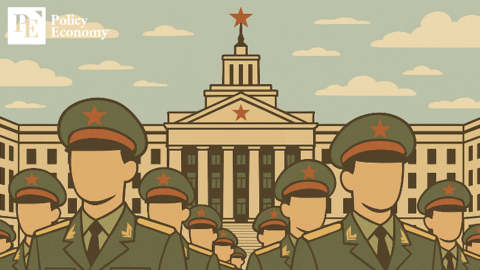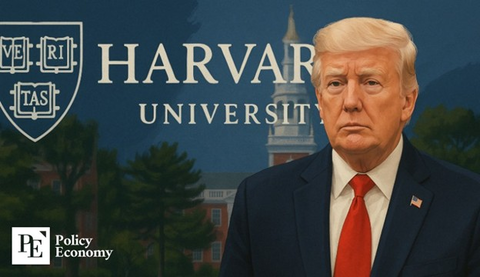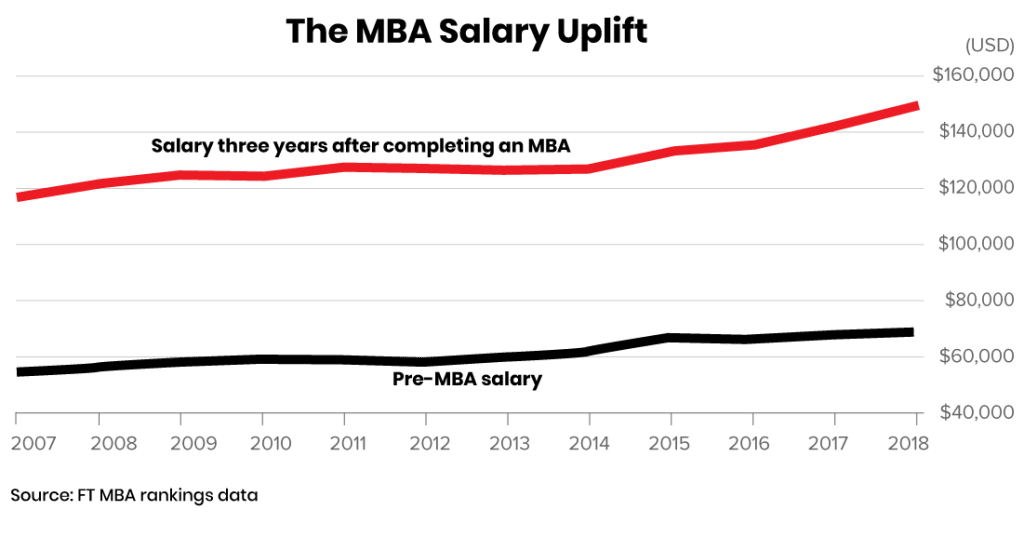Business schools support gender equality
Input
Modified
Women’s underrepresentation at business schools has been the subject of discussion for a long time and it cannot be resolved by a single change. As more Buiness schools support gender equality, more women would be able to perform better in the business world. According to the Forté Foundation, business school barriers for women have been continuously weakened, with 39 percent of women enrolled in MBA courses in 2019 in contrast to 32 percent in 2011.
Having more representation of female leaders is important
Changing the harsh reality of the business world that women are greatly outnumbered has been stagnant. Nevertheless, it needs to be done for varying bright sides that the increased presence of women can bring to the corporate world. Shama Hyder, CEO of Zen Media, claims that women in the business can change the workplace to be more collaborative and productive with better dedication, which can prevent employees’ burnout as a result.
Hyder also highlights the increased demand for “soft” skills from corporates. She says, although the traditional “hard” skills, such as technical knowledge and experience, are still valued, companies are paying more attention to soft skills. These skills involve self-motivation, resilience, networking, communication, critical thinking, and collaboration.

The increased visibility of women in the business world is not simply an outcome of effort breaking the dominant presence of men. Rather, this may be due in part to women’s better performance of these skills. For example, in the workplace, women tend to be capable of successfully making negotiations and solving problems even under high pressure. Also, women tend to be more open to helping other women colleagues, especially future leaders to ensure they perform their full potential.
The pandemic has impacted women’s employment and MBA enrollment
The pandemic recession has engendered challenges across varying sectors and subsequently, many employees have experienced the loss of a job or a large reduction in working hours. Yet, the report of ‘the Center for American Progress indicates that the COVID-induced impacts on women were more severe, with a 4 times higher unemployment rate than among men in September 2020. In this circumstance, applications for MBA from women, ironically or because of it, were increased, bringing back to school those who aim to get an MBA degree and change their career path.
Elissa Sangster, CEO of the Forté Foundation, says "I think that the stall caused women to rethink whether they wanted to go back [to their careers]. If they did have to step away, they may be thinking, 'Do I really want to go back to what I was doing before, or is it the chance for me to make a pivot?'".
MBAs attempt to empower women in business
Women are of course aware of the difficulties in securing a high position in the business world. Even in a respectable corporate, where gender equality is well established, it is not easy.
Businesswoman Atefeh Khodadi tells her own experience with this challenge, "I've worked in companies where I didn't receive equal training to help me progress in my career. I was put down by my male peers when I said I wanted to become CEO of my own company, simply because I was a woman."
However, women in an MBA course tend to be open to sharing their career top tips with future female leaders rather than solely focusing on their careers. This trait of women employees helps business schools design initiatives to empower their female students, for instance, women in business societies, mentoring schemes, and a series of conferences that invite successful female role models.

Studying at business schools can benefit women
When women cannot see the possibilities for themselves to advance their careers in the business world, they are more likely to give up pursuing their professional goals. In business schools, however, women can ensure that they are well equipped with the important skills and knowledge as well as the self-confidence for career achievement.
Dianne Bevelander, professor at the Rotterdam School of Management (RSM), says "It will push women to move outside their comfort zone and give them the confidence to be less modest and allow their talent to shine. They will learn to push boundaries in innovation, accept risk, and welcome leadership roles."
There are tips for women in excelling in MBA programs
The bright side of the situation is that many business schools aim to increase women’s enrollment each year to adjust the gender balance. What is important for women is then knowing how to be strategic to maximize their success as a student.
Sravya Maturu, HHL Leipzig alumna, says "Females are always trying to make sure they're 100% correct before speaking […] But it's up to us to make ourselves heard and speak confidently". Along with stepping out of their comfort zone and embracing networking, women need to encourage themselves to speak up with confidence in their workplace.

Binh Vu, HHL MBA alumna, says "If we want to build a truly disruptive business, then we need more women and diverse people making venture capital decisions”. Knowing the advantages of being a woman in the business world and what these merits can bring to the table is also an important attitude.
How can business schools support women’s change?
Many MBAs have implemented recruitment processes designed to enlarge the proportion of women applicants. However, this does not necessarily guarantee the increased enrollment of women. What schools can do for female students is to present role models who have already achieved professional success in business and to provide them with adequate support to be ready to become future leaders themselves. By boosting women’s networking beyond the MBA course, schools can help current female students and alumni encourage and empower one another.
Read more: US Business Schools Combat Anti-Asian Racism
Member for
8 monthsAs one of the youngest members of the team, Tyler Hansbrough is a rising star in financial journalism. His fresh perspective and analytical approach bring a modern edge to business reporting. Whether he’s covering stock market trends or dissecting corporate earnings, his sharp insights resonate with the new generation of investors.



























 We can see the significant decline of international Chinese students in the US in 2020/21 in a graph by
We can see the significant decline of international Chinese students in the US in 2020/21 in a graph by  2010, when Chinese students started attending US universities in large numbers, the education budget started declining.
2010, when Chinese students started attending US universities in large numbers, the education budget started declining. 

 Just as the Great Wall of China kept foreign invaders out of its land, the Great Firewall keeps many foreign websites out of its country.[/caption]
China’s strict internet censorship is known as the Great Firewall, a wordplay of the famous Great Wall of China. The firewall blocks access to a number of major Western websites, such as Google and YouTube. However, it is not just the online destinations of its citizens the Chinese government tightly controls; content on the allowed websites is also constantly monitored. Specifically, any negative information about the government, be it criticism of the regime or facts about the Tiananmen Square protests, is not permitted. For instance, content on
Just as the Great Wall of China kept foreign invaders out of its land, the Great Firewall keeps many foreign websites out of its country.[/caption]
China’s strict internet censorship is known as the Great Firewall, a wordplay of the famous Great Wall of China. The firewall blocks access to a number of major Western websites, such as Google and YouTube. However, it is not just the online destinations of its citizens the Chinese government tightly controls; content on the allowed websites is also constantly monitored. Specifically, any negative information about the government, be it criticism of the regime or facts about the Tiananmen Square protests, is not permitted. For instance, content on  The regime's control looms over the city, slowly silencing the people's voices.[/caption]
In detail,
The regime's control looms over the city, slowly silencing the people's voices.[/caption]
In detail,  University students actively participated in the protests. Now, the regime pushes for more "patriotic" education. Photo:
University students actively participated in the protests. Now, the regime pushes for more "patriotic" education. Photo: 
 Russian's attitude to the US according to public data published by the
Russian's attitude to the US according to public data published by the 

